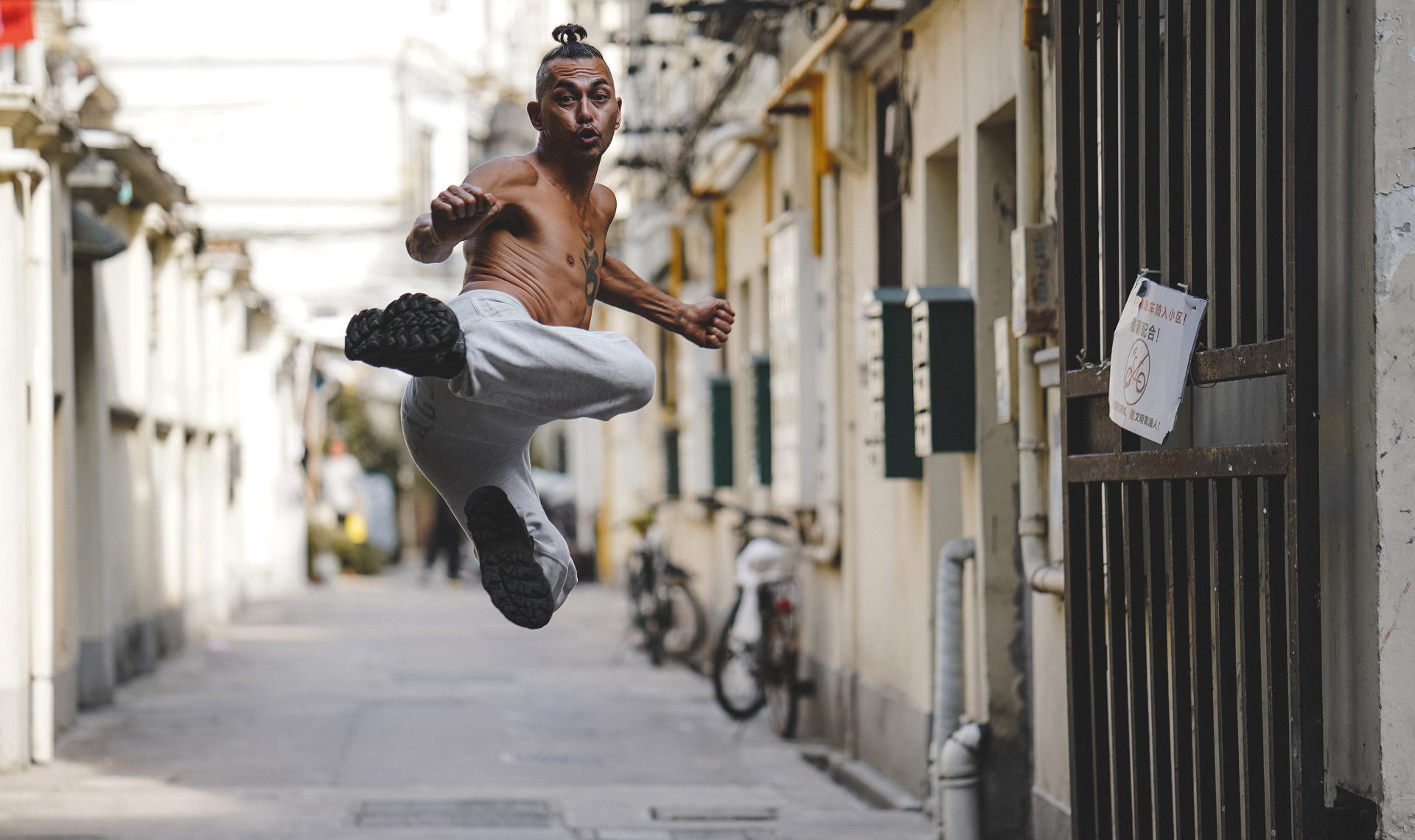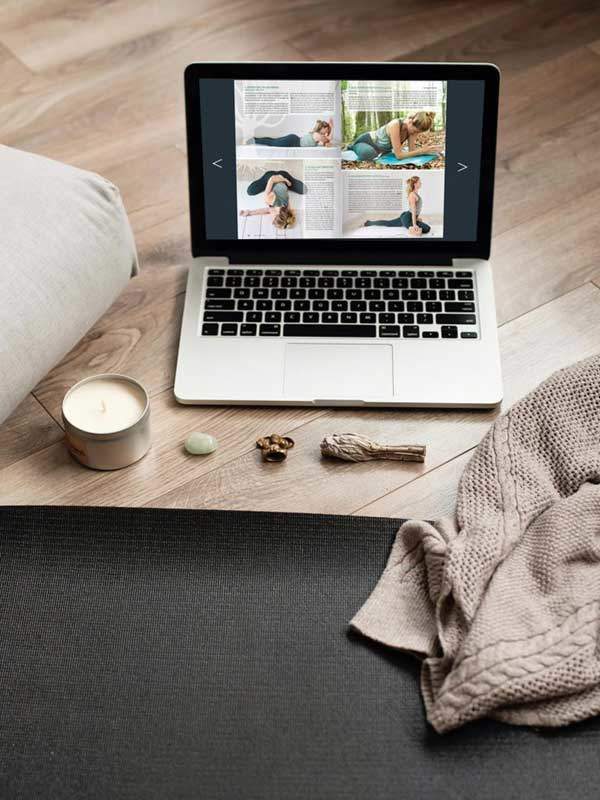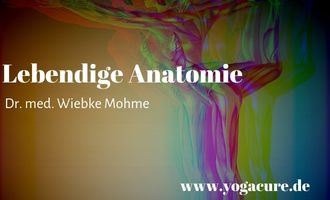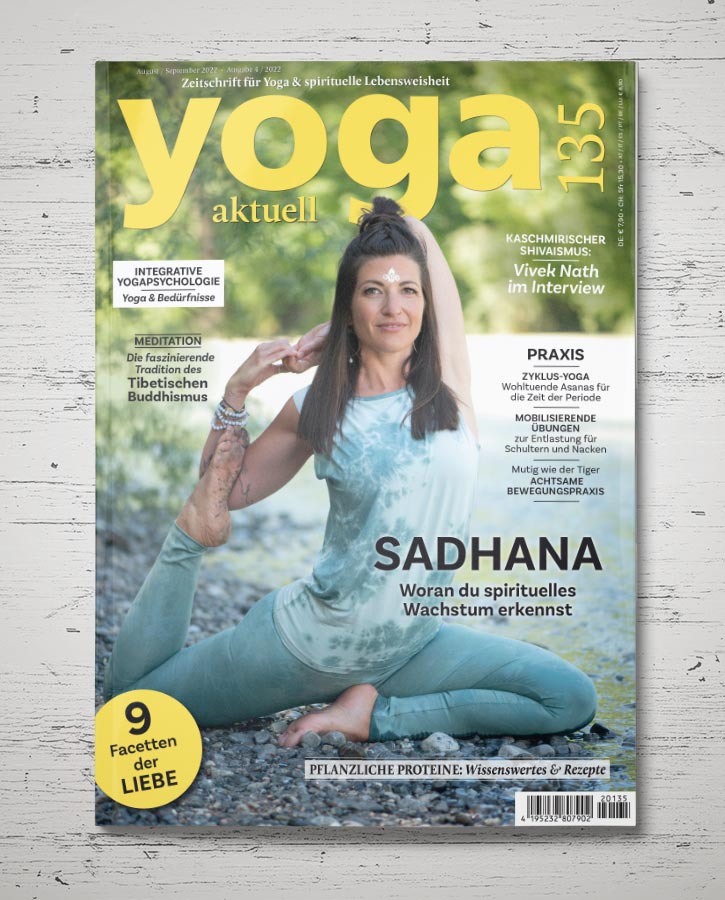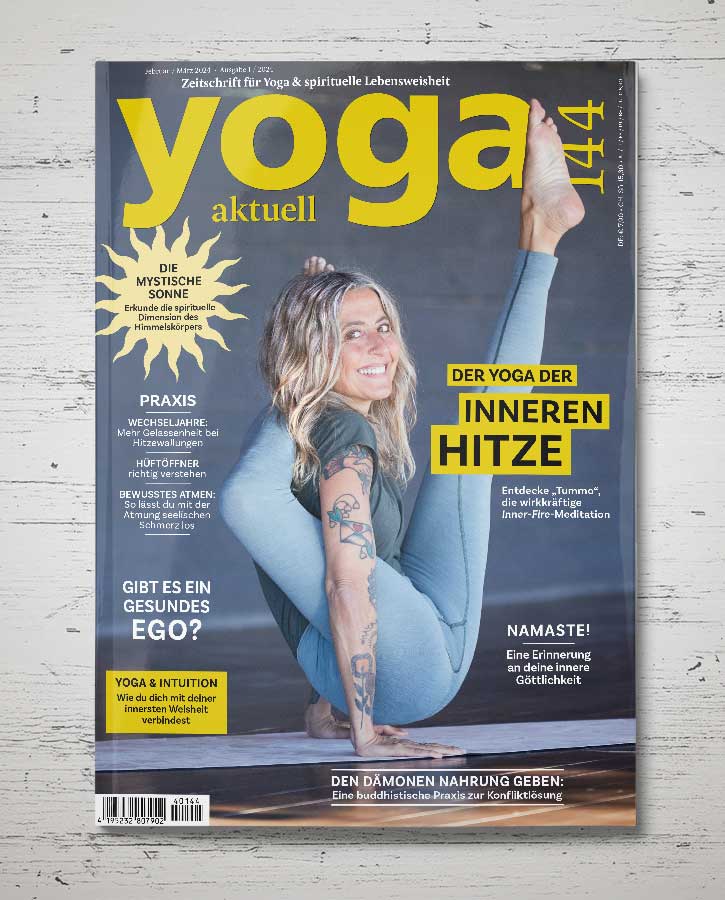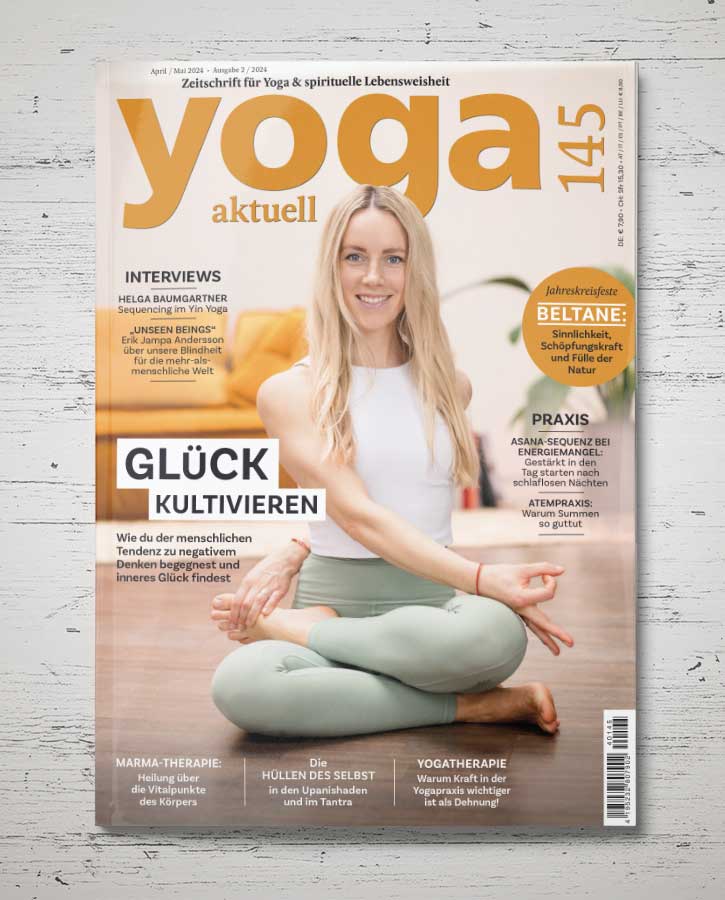Though many warrior yogis followed in the footsteps of Duncan Wong, no one could truly fill the gap he left on the scene during the several last years which he dedicated to raising his children in the mountains of Japan. When there was a chance to meet Duncan in Europe again, YOGA AKTUELL talked to him about finding deeper alignment in nature, transcending the opposites of human perception and about staying grounded in a crazy world.
We live in a crazy world, people are insane. So I have to meditate, practice and teach – it kind of keeps me grounded. Cooking is also how I ground, breathing and being physical is how I connect to myself.
YOGA AKTUELL: When you arrived here, you made a post on instagram about the German term of Zeitgeist and it seems you relate to this term in a pretty genuine way…
Duncan Wong: I knew Zeitgeist had to do something with being in the presence of spirit – when there is something in motion and you comprise it to the higher power. So I started reading up on the definition and I felt synchronised and felt a connection with it. That’s a German word that could pin-point the experience of how I perceive the practice of yoga and how I experience being with people when I am teaching: just feeling the greater force collectively. In a way, what’s happening in a class is also a micro version of the major Zeitgeist.
Would you agree that, while people to some extent come to classes to learn certain poses, sequences or techniques, the aspect of seeking inspiration is generally the much more powerful underlying drive? Maybe even after years of practice, most yoga students will never be able to do a certain flow as perfectly as the teacher does. But what they can definitely draw from a good teacher is an insight into the essence hidden behind the poses or any other greater idea that gives them a taste of a certain experience.
Yes, it is all about connecting with people and being inspired by sharing the space together and sharing the magic of igniting energy together. Practicing in a group is very different from practicing alone. It is all about humanity and compassion, about being an impact. I cannot read people’s minds, but I can read their hearts. We all have that ability, but as a teacher you develop it and learn how to tune in to where someone is at individually and then find the common ground collectively by being present to the spirits in the space and sharing the energy… That’s super powerful! So the techniques are really nothing but an excuse to get together to create magic. Although the physical is very important as it is the gateway into the spiritual in all traditions.
When I watched recent videos of your teaching, I felt even more inspired than in former times: as if there is more subtleness and an even more meaningful sense of dedication. In a way, you have not changed at all, but yet there has obviously been some transformation going on which probably has something to do with fathership and with living in nature. Do you feel this has brought a new quality into your connection with others and into your teaching?
So dramatically! When I was seeking council several years ago, I consulted a great astrologer who is also a yogi, a mystic and a psychic. He is actually a German man whose grandfather was a great psychic healer and a teacher, too. He gave me some insight which was more of a confirmation of what I already sensed, but the way he articulated it was so simple and yet powerful. Sometimes the obvious is hard to perceive even if it is right in front of you or even inside of you.
So he said: “If you really want to correct yourself or to awaken your power and align yourself with the universe, you have to be alone in nature, maybe for a year, and face yourself. And then your path will shift into alignment to access all of life’s bounties.” I had not told him that I had just moved to the forest. I asked him: “How is it that natures heals me?” and he said: “It’s because nature does not want anything from you. And because nature does not want anything from you, you can be yourself. You can be a hysteric dramatic or a zen meditation master or whatever.”
So nature was one edge of the sword that sharpened my perception and the other one indeed was fathership. Your heart never opens like that. No matter how many boy- or girlfriends you have, no matter how many mentors or friends, you never connect to any other being at that level of total, unconditional love and servitude. It’s a different level of yoga for me. For eight years I dropped down the whole scene just to raise my twin sons. And now since raising my kids, I see everyone is my child. That’s the huge shift. Everyone is a baby that got bigger. So in a way, everyone is like your child and you really, really care for everybody.
You have always been emphasizing the importance of the old saying „Master the body, master the mind“. Would you say that by practicing posture and yoga techniques we also refine our hearts, that is we are becoming more compassionate and more loving?
Absolutely. Because I am classically trained in Hatha Yoga I understand the classics like samavṛtti-pranayama. It’s very simple: When the breath is equal, it starts to balance the body and even the emotions and the mind. Even our joints are like stars – we can align with the universe with the body. So I think physical alignment creates emotional, mental, energetic and spiritual alignment. Because as yogis we know we have five bodies, from annamaya-kosha to the spirit body, so physical alignment is automatically heart alignment and mind alignment.
And then when we start adjusting other people, we have to be in extreme alignment, because we are making contact with people and we are sharing energy and we have to protect them physically. I think that also makes a heart connection, because there is all this trust involved and surrendering to someone else’s ability and care. I do a lot of contact work and I think it opens the heart. The point of contact is really important to awaken our passion, our heart-wisdom and our inner sense, our buddhi-chitta. I would say: smart heart, kind mind. Think with your heart and feel with your mind. The whole practice of Buddhism that rooted back from yoga and all those ancient practices is leaving behind the opposites of what we are taught. Usually we are taught to feel with our heart and think with our head, but I flip it, because yoga is about transcending the opposites and getting into the unified field of consciousness. So I try to think with my heart and with my heart-wisdom like the ancients and I try to feel with my mind.
Is there a general openness in students to get into this contact or do you often find people backing away from that?
For sure many have their difficulties, but it is all about the approach. It’s important that they feel impowered to choose. They can just watch and download for while. The fastest way for me to get over people’s fear or uncertainty to do contact work with others is to say: “Okay, I’ll be your partner”, as usually they come to your class because they have a certain trust in you. So they don’t have to wait for someone to partner up with them and I work with them first and make them feel safe.
Many yoga students know about the traditional Indian guru concept, but are not familiar with the East Asian tradition and martial arts tradition so much. What are the characteristics of a Master according to this tradition?
I joked around with that term a lot, because ever since I was a kid, everybody called me master. I don’t know if I really become a master in this lifetime, but I strive to be. On my path I crossed great yoga masters, great martial arts masters, great massage masters, great Sanskrit masters, great chanting masters. I was lucky to have a lot of good teachers. I was a wild kid, a kid on a street – not from a stable family who would bring teachers to you. But I found good teachers and they took me as a student. A smart master can also catch a good student and the only thing that validates a master is that their students become better than them. Like a good parent: you want to give your kid more options.
A master by definition is someone who has a certain ability towards something, a gift or a talent and totally dedicates his life to it, at least for some decades, and becomes the best they can possibly be in that field. And after that twenty or thirty years of doing it every day you can get pretty close to master – or at least first level of master. So a master is also someone who loves what he does and first had the passion to be a great student. But the interesting thing is that sensei or shifu or maestro or meister all mean teacher, so it just depends on the level of the teacher.
So I think my idea of master from martial arts and from yoga is exactly the same.
You have come a long way on your journey and probably you have already been gifted with a lot of insights and intuitive knowledge when you came into this world. While the mind or consciousness is a never-ending playground where there is always lots of uncharted territory left, do you still discover new things about the body also?
First of all I have a lot of injuries, because I played too hard and I played in hard arenas. I was a fighter in the ring and I took a lot of hits. I raised bikes and crashed and I also played yoga too hard. When I was younger I had more ego and less understanding about self-care and also less gentleness towards others and all the things that we learn as we get older. I’m in my fifties now, so it’s a little different. I am discovering every day how to maintain all of my injuries, my weaknesses and my strengths. Every day is a constant re-discovery of how to maintain our body. And I’m also crazy – I think when someone thinks they are not crazy they are far from being grounded. We live in a crazy world, people are insane. So I have to meditate, practice and teach – it kind of keeps me grounded. Cooking is also how I ground, breathing and being physical is how I connect to myself. It helps me to feel okay, to not live in regret of the past or in fear of the future. I was wild, I broke a lot of bridges. Now I am slowly coming to accept myself – all of my failures and all of my accomplishments. And both have been many. I think it is the same for everyone of us – we all have a story. But when I physically feel good, I feel more sane and I feel more fulfilled and happy. Happiness is the fruit of our practice when we practice correctly. There is a lot more to discover, a lot more to explore in the body.
Because of our humanity we are too smart and we drive ourselves crazy by questioning our intelligence, so we need to become ourselves again by just sensing what’s right and stop thinking about it. Be yourself – or recently even more: become yourself again – is my main mantra.
Thank you so much for the interview… Good to have you back on the scene again!
| Find the german version of this Interview with Yogi Duncan Wong in the upcoming winter issue No 119 of YOGA AKTUELL! |


